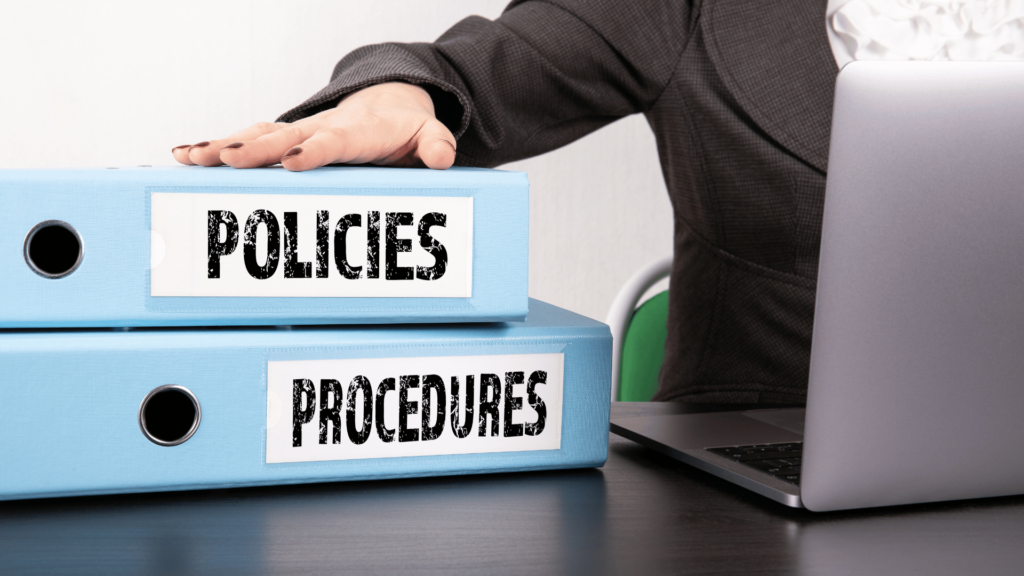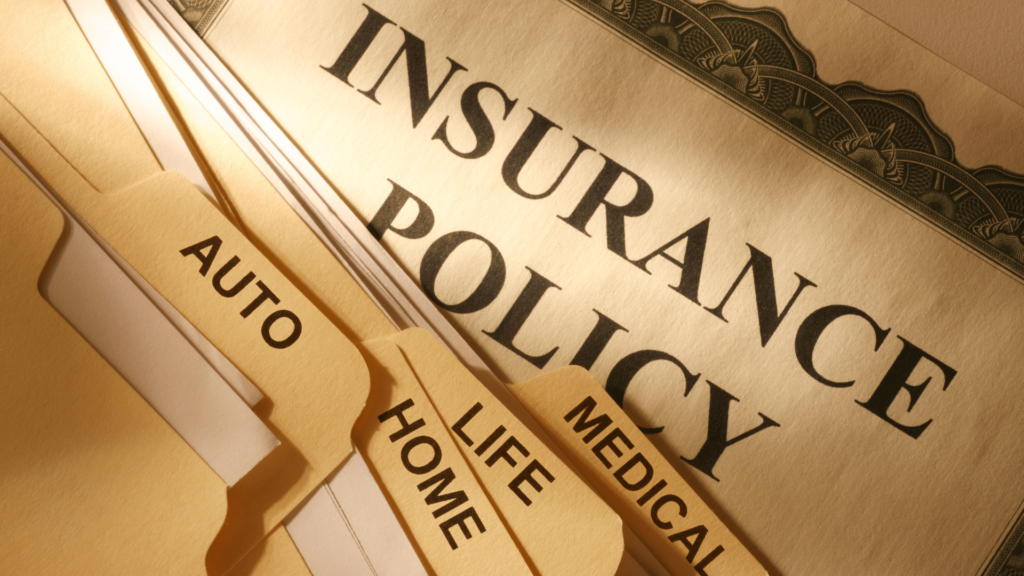Importance of Home Insurance
For homeowners, house insurance is a vital safety net which offers peace of mind and financial security. It guarantees that, in the case of unanticipated events like theft, accidents, or natural catastrophes, your home, personal property, and liabilities are sufficiently protected.
Types of Policies
Understanding the various types of home insurance policies is important for selecting the right option for your needs. From basic form policies to comprehensive coverage options, each policy type offers different levels of protection tailored to homeowners, renters, condo owners, and owners of older homes or mobile homes.
- HO-1 Basic Form Policy: This policy provides coverage for specific perils listed in the policy, offering a basic level of protection for homeowners.
- HO-2 Broad Form Policy: Offering broader coverage for named perils i.e. fire, theft, and vandalism, this policy provides more extensive protection than the basic form policy.
- HO-3 Special Form Policy: The most common type of policy, HO-3 provides coverage for your home against all perils except those specifically excluded, offering comprehensive protection for homeowners.
- HO-4 Renters Insurance: Designed for renters, this policy covers personal belongings and liability, providing essential protection for tenants who don’t own their homes.
- HO-5 Comprehensive Form Policy: Offering extensive coverage for both your home and personal property, this policy is ideal for homeowners who want comprehensive protection against a wide range of perils.
- HO-6 Condo Insurance: Tailored for condo owners, this policy has the interior of your unit and personal property, providing protection specific to the needs of condominium dwellers.
- HO-7 Mobile Home Insurance: Specifically designed for mobile or manufactured homes, this policy offers coverage similar to a standard homeowners policy, ensuring that mobile homeowners have adequate protection for their dwellings.
- HO-8 Older Home Policy: Designed for older homes, this policy provides coverage based on actual cash value rather than replacement cost, offering tailored protection for historic or aging properties.

Coverage Options
Home insurance policies typically include coverage for your dwelling, personal property, and additional living expenses. This comprehensive coverage ensures that you’re financially protected against damage to your home, loss of personal belongings, liability claims, and temporary living expenses if your home becomes uninhabitable.
- Dwelling Coverage: This part ensures that you can rebuild or restore your house in the event that it is damaged or destroyed by guarding against damage from covered risks including wind, fire, and vandalism.
- Personal Property Coverage: Covers the belongings inside home, including furniture, electronics, clothing, and appliances, providing reimbursement for their repair or replacement if they’re damaged, stolen, or destroyed.
- Liability Protection: provides financial protection by paying for court costs, medical costs, and damages awarded in a lawsuit if you or a family member is judged accountable for hurting someone or ruining their property.
- Additional Living Expenses: Covers cost of temporary housing in the event that a covered loss renders your home unusable, including costs for lodging, food, and other essentials while your house is being rebuilt or restored.

Premium Factors
Several factors influence home insurance premiums, affecting the cost of your coverage and determining how much you’ll pay for protection. Understanding these factors may help you make informed decisions when purchasing home insurance and potentially lower your insurance costs.
- Location: Your home’s location has a big impact on your insurance costs; things like crime rates, how close your house is to a fire station, and how vulnerable your property is to natural catastrophes all effect your premiums.
- Home Value: The value of your home and its contents impact your insurance premiums, with higher-value homes typically commanding higher premiums due to the increased cost of replacement or repair.
- Construction Materials: The materials used to build home can affect your premiums, with homes made of fire-resistant materials often receiving lower rates due to their reduced risk of damage from fire or other perils.
- Claims History: Your claims history can influence your premiums, with insurers considering previous claims when determining your risk profile and setting your rates.
- Deductible Amount: The deductible amount we choose can impact your premiums, with higher deductibles resulting in lower premiums and vice versa. Choosing a higher deductible can help us save on premiums but requires you to pay more out of pocket in the event of a claim.
Understanding Deductibles
The amount you have to pay out-of-pocket before your insurance coverage begins is known as your deductible, and it’s an important feature of house insurance policy. Knowing how deductibles operate and selecting the appropriate amount for your requirements will let you to efficiently manage your premiums & out-of-pocket costs.
- Impact on Premiums: Your deductible amount directly affects your insurance premiums, with higher deductibles resulting in lower premiums and vice versa. Choosing a higher deductible may help you save on premiums but requires you to pay more out of pocket in the event of a claim.
- Types of Deductibles: Fixed-dollar and percentage deductibles are the two primary forms of deductibles used in house insurance contracts. Whereas percentage deductibles are computed as a proportion of your home’s insured value, fixed-dollar deductibles are expressed as a fixed monetary sum.
- Choosing the Right Deductible: When selecting a deductible amount, it’s essential to consider your budget, risk tolerance, and the potential cost of filing a claim. Select a deductible that will allow you to pay your premiums and out-of-pocket costs in balance, should you need to submit a claim.

Choosing the Right Policy
Selecting a right home insurance policy involves a careful evaluation of your coverage needs, comparison of policies and providers, understanding of policy terms and coverage, and regular reviews to ensure ongoing adequacy.
- Assessing Coverage Needs: Evaluate the worth of your home, personal belongings, and potential liabilities to determine the amount of coverage you need. Consider factors such as your home’s location, replacement cost, and your financial assets to ensure adequate protection.
- Comparing Policies and Providers: Obtain quotes from multiple insurance providers and compare coverage options, premiums, deductibles, and customer reviews. Look for reputable insurers with history of financial stability and excellent customer service.
- Understanding Policy Terms: To comprehend the restrictions, exclusions, and coverage limitations of any policy, carefully read the small print. To make sure your insurance suits your requirements, pay close attention to key elements like liability protection, supplementary living expenditures, and coverage for high-value objects.
- Regularly Reviewing Policies: Review your home insurance policy annually or whenever you experience significant life changes, such as renovations, purchases of valuable items, or changes in occupancy. Update your coverage as need to reflect changes in your circumstances and ensure ongoing protection.

Renters’ Insurance
Renters insurance provides essential protection for tenants, covering personal belongings and liability. Even if you don’t own your home, renters insurance can offers peace of mind knowing that your possessions are protected against loss, and you’re financially covered in case of accidents or injuries on the premises.
- Protects Personal Belongings: Renters insurance covers your personal belongings, including furniture, clothing, electronics, and appliances, against damage, loss caused by covering perils such as fire, theft, and vandalism.
- Provides Liability Protection: In addition to covering your belongings, renters insurance also provides liability protection, covering legal fees, medical expenses, and damages if you’re found responsible in damaging their property.
Homeowners’ Insurance
Homeowners insurance is made to protect homeowners against damage to their dwelling, personal belongings, and liability claims. Whether you own a house, condo, or mobile home, homeowners insurance provides essential coverage to safeguard your most significant investment and provide financial security for you and your family.
- Covers Homeowners: Homeowners insurance provides coverage for your dwelling, personal property, and liability, ensuring that you’re financially protected against wide range of perils and risks.
- Protection for Your Dwelling: Your home is one of your most valuable possessions, and homeowners insurance provides essential defence against damage or loss from covered incidents including fire, windstorm, and vandalism. No matter how much damage was done or whether a full rebuild is required, homeowners insurance may help you get over the loss and start again.

Additional Coverage
In addition to standard coverage options, home insurance policies can offer additional coverage options to meet your specific needs. From flood insurance to identity theft coverage, these additional coverages provide added protection against a range of risks and perils that may not be covered by standard policies.
- Flood Insurance: Protects against damage caused by flooding, which is typically excluded from standard home insurance policies. If you live in a flood-prone area or near a body of water, flood insurance can provide crucial financial protection against this common and costly peril.
- Earthquake Insurance: Covers earthquake damage, which is often not covered by ordinary house insurance plans. If you reside in an area that is prone to earthquakes, earthquake insurance may provide crucial protection to assist you in rebuilding or repairing your house and replacing any damaged possessions.
- Sewer Backup Coverage: Provides protection against damage caused by sewer backups, which can occur due to blockages or overflows in your home’s sewer lines. This coverage can help cover the cost of cleanup, repairs, and replacement of damaged property.
- Identity Theft Coverage: Protects against the financial consequences of identity theft, including unauthorized charges, fraudulent withdrawals, and legal fees associated with restoring your identity. Identity theft coverage can provide peace of mind knowing that you’re financially protected against this increasingly common crime.
- Home Business Coverage: Covers equipment, inventory, and liability related to operating a business from your home. If you run a business out of your home, home business coverage can provide essential protection against loss or damage to your business assets and financial liability for injuries or accidents related to your business operations.
Making Claims
Even though filing a home insurance claim might be challenging, being familiar with the process can help to ensure a speedy and satisfied resolution. By keeping meticulous records of the damage, contacting your insurance company as soon as possible, working with your claims adjuster, and closely reviewing settlement offers, you may improve your chances of receiving fair reimbursement for your losses.
- Documenting Damage: Take photographs or videos of the damage to your property and belongings as soon as possible after the loss occurs. Keep detailed records of any repairs or replacements needed, including receipts and estimates.
- Contacting Your Insurer: Notify your insurance company of the loss and file a claim as soon as possible. Provide them with all relevant information about the damage and cooperate fully with their investigation.
- Working with Claims Adjusters: Your insurance company will assign a claims adjuster to assess the damage and determine the amount of your claim. Cooperate with the adjuster and provide any additional information or documentation they request.
- Reviewing Settlement Offers: Carefully review any settlement offers from your insurance company to ensure that they adequately compensate you for your losses. If you believe the offer is insufficient, negotiate with your insurer or seek assistance from a public adjuster or legal counsel.

Common Exclusions
While home insurance provides broad coverage, there are certain perils and events typically excluded from coverage. Understanding these common exclusions can help you supplement your coverage with additional policies or endorsements to ensure comprehensive protection.
- Floods: Damage caused by floods is typically excluded from standard home insurance policies. If you live in a flood-prone area, you may need to purchase separate flood insurance for protect your home and belongings.
- Earthquakes: Similarly, damage caused by earthquakes is usually excluded from standard policies. If you live in an earthquake-prone region, consider purchasing earthquake insurance to cover potential damage to your home and property.
- Wear and Tear: Home insurance does not cover normal wear and tear on your property or possessions. Maintaining your home properly is crucial to avoiding damage brought on by carelessness.
- Neglect and Intentional Damage: Damage caused by neglect or intentional acts is typically not covered by home insurance. It’s essential to take reasonable precautions to protect your property and belongings from damage.
- High-Value Items: Jewellery, artwork, and technology are examples of high-value objects for which home insurance policies frequently have coverage limits. If the value of the valuables you hold exceeds these limitations, you might want to think about adding more coverage or listing them separately on your policy.
Lowering Premiums
There are several strategies homeowners can use to lower their home insurance premiums and save money on coverage. From increasing deductibles to bundling policies, improving home security, maintaining a good credit score, and shopping around for quotes, these proactive measures can help you find affordable coverage without sacrificing protection.
- Increasing Deductibles: Your insurance premiums may be lowered by choosing a higher deductible, but make sure you have the money to cover the increased out-of-pocket costs in the event of a claim.
- Bundling Policies: Bundling your home and vehicle insurance policies with one provider might result in discounts from many insurance carriers.To save money on both rates, think about combining your insurance into one.
- Improving Home Security: Installing security features such as smoke detectors, burglar alarms, and deadbolt locks can lower your insurance premiums by reducing the risk of theft and vandalism.
- Maintaining a Good Credit Score: Keeping a high credit score might help you qualify for reduced rates because insurance companies frequently use credit scores to determine prices. Keep your credit card balances modest, pay your payments on time, and refrain from creating new credit accounts. unnecessarily.
- Shopping Around for Quotes: Never accept the first quote you are given. Look about and evaluate quotations from several insurance providers to get the finest protection at the most affordable price.

High-Value Homes
Owning a high-value home comes with unique insurance considerations, including specialized coverage, increased coverage limits, valuable items coverage, increased liability protection, and risk management strategies. By addressing these specific needs and working with an experienced insurance agent, high-value homeowners can ensure that their property and assets are adequately protected against potential risks and liabilities.
- Specialized Coverage: High-value homes often require specialized coverage to adequately protect their unique features and assets. Work with an insurance agent who specializes in high-value homes to ensure that your policy meets your specific needs.
- Increased Coverage Limits: Standard home insurance policies may not provide sufficient coverage for high-value homes and their contents. Consider increasing your coverage limits to ensure that you’re adequately protected against potential losses.
- Valuable Items Coverage: High-value homeowners often have valuable possessions such as jewelry, artwork, and collectibles that may exceed the coverage limits of standard policies. Consider purchasing valuable items coverage or scheduling these items separately on your policy to ensure that they’re fully protected.
- Increased Liability Protection: High-value homeowners may be at greater risk of liability claims due to their higher net worth. Consider increasing your liability coverage to protect your assets and provide financial security for you and your family.
- Risk Management Strategies: Implement risk management strategies such as regular property inspections, maintenance, and security measures to prevent losses and reduce your insurance risk profile. By proactively managing risks, you can minimize the likelihood of filing claims and potentially lower your insurance premiums.
Regular Policy Reviews
Regularly reviewing your home insurance policy is essential for ensuring that you have adequate coverage for your changing needs. By assessing your coverage needs, reviewing policy terms and coverage, updating coverage as needed, shopping around for quotes, and staying informed about changes in the insurance industry, you can ensure that your policy continues to provide the protection you need for your home and belongings.
- Assessing Coverage Needs: Review your coverage needs annually or whenever you experience significant life changes such as renovations, purchases of valuable items, or changes in occupancy. Make sure your policy reflects your current circumstances and adequately protects your home and belongings.
- Reviewing Policy Terms: Carefully review your policy terms and coverage to ensure that you understand what is and isn’t covered. Pay attention to any changes in coverage or premiums and contact your insurance agent if you have any questions or concerns.
- Updating Coverage as Needed: Update your coverage as needed to reflect changes in your circumstances or needs. If you’ve made improvements to your home, purchased valuable items, or experienced changes in occupancy, make sure your policy reflects these changes to ensure adequate protection.
- Shopping Around for Quotes: Don’t assume that your current insurer offers the best rates. Shop around and compare quotes from multiple insurance companies to ensure that you’re getting the best coverage at the most competitive price.
- Staying Informed: Keep up with any changes that may impact your policy, like as discounts, new coverage choices, or regulatory changes in the insurance business.You may make proactive steps to guarantee that your insurance continues to fulfil your requirements and provide the greatest possible protection for your house and possessions by keeping yourself informed.

FAQs
What does home insurance cover?
Home insurance typically covers damage to your home and personal belongings caused by covered perils such as fire, theft, vandalism, and natural disasters. It also provides liability protection against legal claims for bodily injury or property damage.
How much home insurance do I need?
The amount of home insurance you need depends on factors such as the value of your home, the cost to rebuild, and the value of your personal belongings. It’s essential to choose coverage limits that adequately protect assets without overpaying for coverage you don’t need.
What factors affect home insurance premiums?
Several factors can affect home insurance premiums, including the location of your home, its value and construction materials, your deductible amount, and the presence of security features such as smoke detectors and burglar alarms.
Do I need flood insurance?
Flood insurance is not included in standard home insurance policies and requires separate coverage. If you live in an area prone to flooding or near a body of water, such as a river or lake, it’s essential to purchase flood insurance to protect against this common and costly peril.
Can I lower my home insurance premiums?
Yes, there are several ways to lower home insurance premiums,i.e. increasing your deductible, bundling your policies, improving home security, maintaining a good credit score, and shopping around for quotes.
What is the difference between actual cash value & replacement cost coverage?
Actual cash value coverage pays the current market value of your home or belongings, taking depreciation into account, while replacement cost coverage pays the cost to repair or replace your home or belongings at today’s prices without depreciation.
What is liability protection in home insurance?
Liability protection in home insurance provides financial protection if you or a family member are found legally responsible for injuring or damaging their property. This coverage helps cover legal fees, medical expenses, and damages awarded in a lawsuit.
Do I need renters insurance if I don’t own my home?
Yes, renters insurance is essential for tenants who rent their homes. While landlords typically may have insurance coverage for the structure of the rental property, renters insurance provides protection for tenants’ personal belongings, liability protection, and additional living expenses in event of a covered loss.
How often should I review my home insurance policy?
It’s a good idea to review your home insurance policy annually or whenever you experience significant life changes i.e. purchasing a new home, renovating your property, or acquiring valuable assets. Regular policy reviews can help by making ensure that you have adequate coverage for changing needs.
What should I do if I need to file a home insurance claim?
If you need to file a home insurance claim, document the damage, contact your insurance company to report the claim, work with your claims adjuster to assess the damage, review your settlement offer, and follow up as needed to ensure a smooth resolution.
Conclusion
Purchasing home insurance is essential if you want to safeguard your most precious possession and have peace of mind in the event of unforeseen circumstances. You can benefit from complete safety and financial security for your property and assets by comprehending the significance of house insurance, investigating your coverage alternatives, and taking proactive measures to secure your home and things. Having appropriate insurance coverage in place can provide you comfort and peace of mind knowing that you’re ready for everything life throws at you, whether you’re a homeowner or renter.
